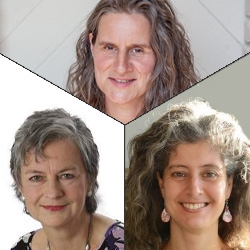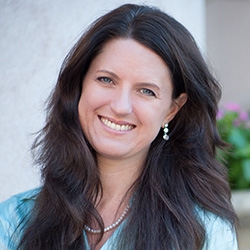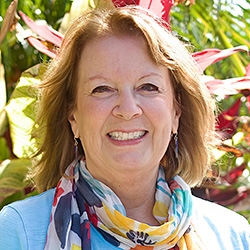

Search Results: agreement
-
Some things may seem to take longer at first, but end up making things easier and faster. Other things seem easier or faster in the short term, but end up taking more time in the long run. This applies to projects, group agreements about process, relationships, addressing conflicts, clearing up misunderstandings, damage control, etc. It can be faster to slow down, be more present, and take the time since we care about the outcome.
-
- Learn how to set up and maintain effective systems
- Acquire tips for harnessing community buy-in and the energies of key people
- Transform tension and anxiety into peaceful, life-enriching energy
- Remain grounded and confident when facing any kind of conflict
-
- Inscrease compassion for yourself through understanding why your capacity may lag so far behind your commitment and what you can do to bridge the gap
- Higher Compassion for your children as you understand better what life is like from within their own experience rather than from the outside looking in
- Surge in energy that you can put into new conversations with them designed to make agreements that are based on the truth of where you all are rather than on any "should"
-
- Discover what is yours to do in response to our global crises
- Weave nonviolence more deeply into how you live and lead
- Receive ongoing support in how to be effective and alive while pursuing your highest goals
- Increase your capacity to face and mourn current reality as a source of greater choice and energy
- Be a part of transforming the legacy of scarcity, separation, and powerlessness into a livable future
-
- Explore what makes the capacity lens radical and practical
- Understand the complexities of how capacity and willingness interface
- Mourn capacity limits within and around us without jumping to conclusions
- Orient to agreements as behavioral anchoring in support of your commitments
-
Feel confident building the relationship you want with your children, inclusive and real.
-
- Discover how mediation is a fundamental social skill that everyone can learn
- Gain the skills to stay centered when a conflict becomes heated
- Learn how to lead a dialogue toward sustainable agreements
- Help facilitate connection and creativity to discover and meet everyone’s needs
-
- Discover what is yours to do in response to our growing global crises
- Weave nonviolence more deeply into how you live and lead
- Receive ongoing support within and beyond the course in how to be effective and alive while doing what’s yours to do
- Increase your capacity to face and mourn current reality as a source of greater choice and energy
- Be a part of transforming the legacy of scarcity, separation, and powerlessness into a livable future
-
- Do you know what is yours to do in response to our growing global crises?
- Is nonviolence woven as deeply as you want it into how you live and lead?
- Have you ever experienced what it’s like to participate in an interdependent web of mutual support to fully embody our commitments?
- Are you familiar with how to bring yourself back again and again to aligning with purpose in every moment?
- Do you see yourself as part of transforming the legacy of scarcity, separation, and powerlessness into a livable future?
-
The purpose of boundaries is to prevent harm to yourself and others. You decide what you are available for and what you are not. Boundaries are a clear expression of limits that keep your heart open no matter what.
-
Duke Duchscherer shares what the role of the facilitator is in a restorative circle.
-
NVC practice is based on several key assumptions and intentions. When we live based on these assumptions and intentions, self-connection and connection with others become increasingly possible and easy, helping us contribute to a world where everyone’s needs are attended to peacefully.
-
Trainer Tip: Wanting collaboration? Show you value the other person's needs as much as your own. After you both feel heard, you can make joint decisions about specifics of the agreement, such as "division of work", "scope of project", "when the action will take place", "how it'll be done" and "timing of follow up to see how things went". Read on for an example of how this is applied to asking someone to pitch in with doing chores.
-
How do we talk to ourselves and with others about polarizing topics in a way that's supportive? Seek to understand and be understood rather than press for agreement. Bring mindfulness into the conversation. Slow down and use structure to support everyone. Release knowing the solutions, answers or outcomes. Keep focus on shared universal needs. From this place we can say what's in our hearts and minds, and trust the process.
-
We can see anger as an alarm or signal that can inform us that unmet needs require attention, or that we hold judgements. We can shift our own anger in several healthy ways: get present, identify the stimulus and any judgements or unmet needs, look for ways to meet our needs, make requests that support our needs, express our needs to ourselves and appropriate others, and more.
-
One thing that makes empathic understanding difficult yet valuable is that it can be humbling. If I really open myself to hearing and understanding, while trusting my inner strength of self-knowing, I may be changed by what I hear. My core beliefs or understanding might change and grow. This openness could be key to transforming the energy of conflict into new possibilities for greater connection, creativity, and well-being.
-
-
-
To express opposition without stimulating distress, stop judging and look for ways to honor, understand, and have compassion for others. You can do this by finding a point of agreement. For example, you can agree with part of what they said. Or if you completely disagree, you can express what greater understanding, inspiration, appreciation or empathy you have in response to what they're saying. Read on for more on this, plus, ten sentence stems to get you started.

Quick Links
Subscription Preferences
Stay In Touch!
Looking for ways to keep up with NVC Academy news, get special offers, free resources, or words of inspiration? Here are five ways to stay engaged:
















